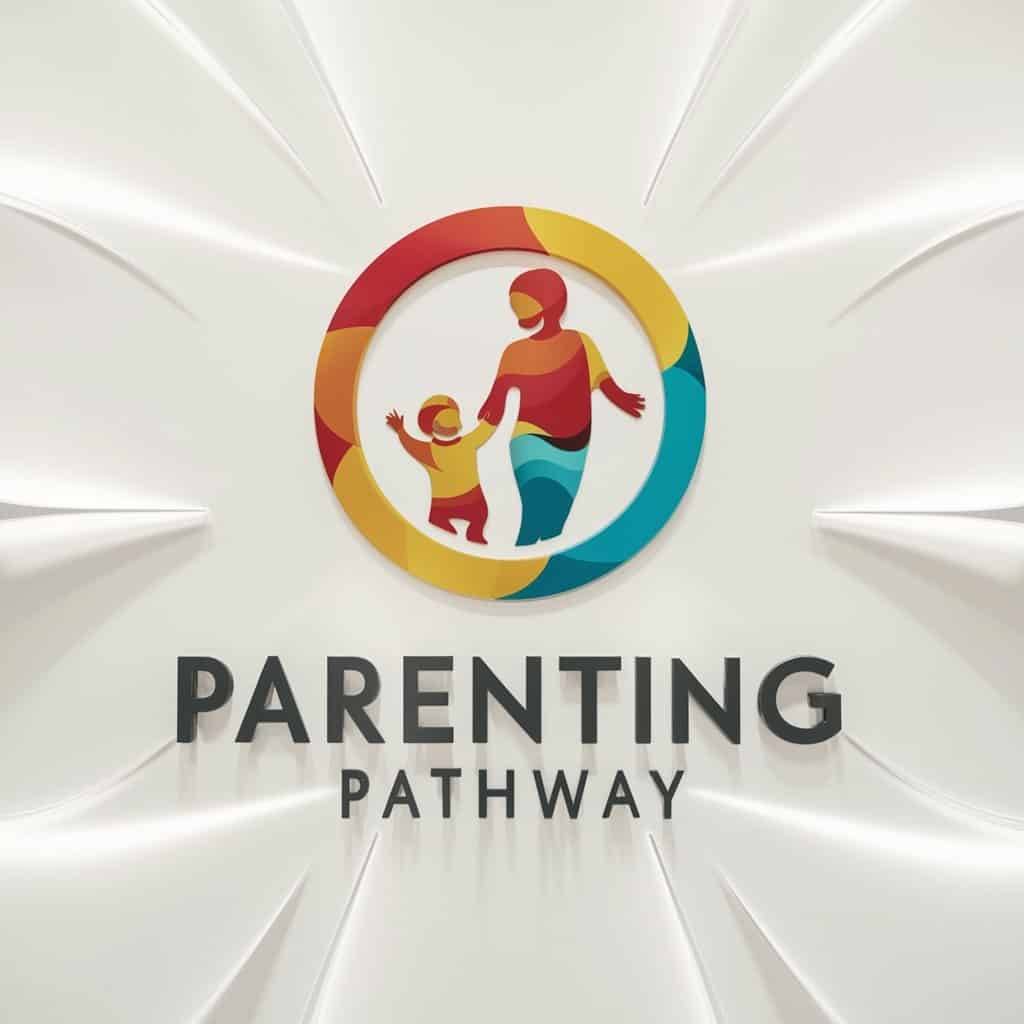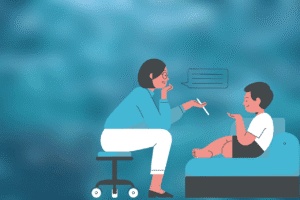Psychologist Or Psychiatrist For Child Anxiety: Who Should You See First?
Back to Blog
Understanding Child Anxiety: Choosing Between a Psychologist and Psychiatrist
When your child struggles with anxiety, deciding between a psychologist and psychiatrist can feel overwhelming. Parents often wonder which professional can provide the most effective support for their child’s emotional well-being.
Recognizing the Signs of Child Anxiety
Anxiety in children can manifest through various symptoms, including:
• Excessive worrying
• Difficulty sleeping
• Physical complaints like stomachaches
• Avoiding social situations
• Intense fear or panic
• Trouble concentrating
Understanding Professional Roles
Psychologists and psychiatrists both help children manage anxiety, but their approaches differ significantly. A psychologist typically focuses on talk therapy and behavioral interventions, helping children develop coping strategies through counseling and psychological techniques.
Psychiatrists, on the other hand, are medical doctors specialized in mental health who can prescribe medication. They diagnose complex mental health conditions and can provide comprehensive treatment plans that might include pharmaceutical interventions.
Initial Consultation Considerations
Most experts recommend starting with a psychologist for child anxiety. These professionals offer several advantages:
• Non-invasive treatment approaches
• Focus on behavioral and cognitive strategies
• Lower cost compared to psychiatric consultations
• Teaching long-term emotional regulation skills
A psychologist will assess your child’s specific anxiety triggers, emotional patterns, and develop tailored therapeutic strategies. They can help children understand their feelings, learn relaxation techniques, and build emotional resilience.
When Medication Might Be Necessary
Some anxiety cases might require medication, which is where a psychiatrist becomes crucial. Signs indicating potential medication consideration include:
• Severe anxiety disrupting daily functioning
• Persistent symptoms not responding to therapy
• Concurrent mental health conditions
• Intense physiological anxiety responses
In such scenarios, a psychiatrist can evaluate whether medication could provide additional support alongside psychological interventions.
Collaborative Treatment Approach
The most effective anxiety treatment often involves collaboration between professionals. Many psychologists and psychiatrists work together, creating integrated treatment plans that address both psychological and potential medical aspects of anxiety.
Parents should look for professionals who:
• Specialize in child and adolescent mental health
• Have experience treating anxiety disorders
• Demonstrate compassionate, child-friendly communication
• Offer flexible treatment strategies
Selecting the Right Professional
When choosing between a psychologist and psychiatrist, consider:
• Your child’s specific symptoms
• Severity of anxiety
• Previous treatment experiences
• Insurance coverage
• Comfort level with potential treatment approaches
Recommended initial steps include:
- Consulting your pediatrician
- Getting a professional referral
- Scheduling initial consultations
- Discussing treatment options thoroughly
Important Screening Factors
Evaluate potential professionals by:
• Checking professional credentials
• Reading patient reviews
• Verifying specialization in child mental health
• Assessing communication style
• Understanding proposed treatment methodology
Remember that finding the right mental health professional is a collaborative journey. Each child’s anxiety is unique, requiring personalized, compassionate support.
The goal is creating a supportive environment where your child feels safe exploring their emotions and developing healthy coping mechanisms. Whether you start with a psychologist or psychiatrist, prioritize your child’s emotional well-being and comfort throughout the treatment process.
With patience, professional guidance, and a holistic approach, children can learn to manage anxiety effectively, building emotional resilience that serves them throughout their lives.
Signs of Anxiety in Children: When Professional Help Becomes Necessary
Understanding when your child might need professional help for anxiety can be challenging for many parents. Anxiety in children often manifests differently than in adults, making it crucial to recognize subtle warning signs that indicate more than typical developmental stress.
Children experiencing persistent anxiety might display behavioral changes that parents should carefully observe. Excessive worry about everyday situations, frequent physical complaints like stomachaches or headaches, and reluctance to participate in social activities could signal an underlying anxiety disorder.
Emotional and Behavioral Red Flags
Key indicators of potential anxiety in children include:
- Recurring nightmares or sleep disruptions
- Extreme separation anxiety beyond typical developmental stages
- Persistent fear of specific situations or environments
- Difficulty concentrating or experiencing academic performance decline
- Unexplained emotional outbursts or irritability
Physical Manifestations of Childhood Anxiety
Anxiety doesn’t just impact emotional well-being; it can significantly affect a child’s physical health. Symptoms like rapid heartbeat, sweating, trembling, and muscle tension might indicate more profound psychological distress. Some children experience panic attacks characterized by overwhelming fear and physical discomfort.
Impact on Daily Functioning
When anxiety begins interfering with a child’s ability to engage in normal activities, professional intervention becomes essential. This might include persistent school refusal, social withdrawal, or complete avoidance of previously enjoyed activities.
Understanding Developmental Context
Not all anxious behaviors indicate a clinical disorder. Child development involves natural phases of fear and uncertainty. However, persistent patterns lasting several weeks or months warrant professional assessment.
Professional Intervention Strategies
Mental health professionals specializing in child psychology can provide comprehensive evaluations. These assessments help determine whether a child’s anxiety stems from temporary stressors or requires more structured therapeutic approaches.
Therapeutic Approaches for Children
Professionals typically recommend tailored interventions based on individual needs. Cognitive-behavioral therapy (CBT) has proven particularly effective in helping children develop coping mechanisms and reframe anxious thought patterns.
- Individual counseling sessions
- Family therapy techniques
- Play-based therapeutic interventions
- Skill-building workshops
Potential Long-Term Consequences
Untreated childhood anxiety can lead to more severe mental health challenges in adolescence and adulthood. Early detection and intervention significantly improve long-term psychological outcomes and prevent potential developmental complications.
Collaborative Support System
Successful anxiety management requires collaboration between parents, educators, and mental health professionals. Open communication and consistent support create a nurturing environment that helps children develop resilience and emotional intelligence.
Seeking Professional Guidance
If you observe persistent anxiety symptoms in your child, consulting a child psychologist or pediatric mental health specialist is recommended. These professionals can provide comprehensive evaluations, distinguishing between normal developmental variations and potential clinical concerns.
Remember that seeking help demonstrates strength, not weakness. By addressing childhood anxiety proactively, parents can help their children develop essential emotional regulation skills and build a foundation for future mental well-being.
Treatment Approaches for Childhood Anxiety Disorders
When children struggle with anxiety, finding the right treatment approach becomes crucial for their mental well-being and development. Understanding the various strategies and interventions can help parents and caregivers support their child’s emotional health effectively.
Understanding Childhood Anxiety Disorders
Anxiety disorders in children can manifest through various symptoms, including excessive worry, physical tension, avoidance behaviors, and emotional distress. These conditions can significantly impact a child’s daily functioning, academic performance, and social interactions.
Comprehensive Treatment Strategies
Effective treatment typically involves a multi-dimensional approach that addresses the child’s unique emotional and psychological needs. Healthcare professionals often recommend a combination of therapeutic interventions tailored to the specific type and severity of anxiety.
Cognitive Behavioral Therapy (CBT)
CBT stands out as a primary intervention for childhood anxiety. This evidence-based approach helps children:
- Identify negative thought patterns
- Develop coping mechanisms
- Learn practical skills to manage anxiety
- Challenge irrational beliefs
- Build emotional resilience
Family-Based Interventions
Parents play a critical role in supporting children with anxiety disorders. Therapeutic approaches often include family counseling to:
- Improve communication
- Create supportive home environments
- Teach effective parenting strategies
- Help families understand anxiety triggers
Psychological and Behavioral Techniques
Specialized psychological techniques can help children develop emotional regulation skills. These may include:
- Exposure therapy
- Relaxation training
- Mindfulness meditation
- Social skills training
Medication Considerations
In some cases, healthcare professionals might recommend medication as part of a comprehensive treatment plan. Selective serotonin reuptake inhibitors (SSRIs) can be prescribed when anxiety significantly impacts a child’s daily functioning. However, medication is typically considered after thorough evaluation and should always be combined with therapeutic interventions.
School-Based Support
Collaboration with educational institutions is essential for managing childhood anxiety. School counselors and teachers can provide additional support by:
- Implementing individualized education plans
- Creating accommodations for anxiety-related challenges
- Monitoring social interactions
- Providing emotional support
Alternative and Complementary Approaches
Holistic treatment may incorporate additional strategies such as:
- Art therapy
- Play therapy
- Physical exercise
- Nutritional counseling
- Sleep hygiene management
Long-Term Management
Successful treatment of childhood anxiety requires ongoing commitment and patience. Regular assessments help track progress and adjust interventions as the child grows and develops. Early intervention and consistent support can significantly improve long-term outcomes and help children develop healthy emotional coping mechanisms.
Professional Guidance
Parents should consult qualified mental health professionals who specialize in child psychology. A comprehensive evaluation will help determine the most appropriate treatment approach, considering the child’s individual needs, personality, and specific anxiety manifestations.
By adopting a holistic and personalized approach, children can learn to manage anxiety effectively, build emotional resilience, and develop the skills necessary for healthy psychological development.
Differences in Diagnostic Methods: Psychologist vs. Psychiatrist Assessment
When seeking help for child anxiety, parents often find themselves navigating a complex landscape of mental health professionals. Understanding the distinct approaches of psychologists and psychiatrists can help families make informed decisions about their child’s mental health care.
Psychologists and psychiatrists employ different diagnostic methods that can significantly impact a child’s anxiety treatment. While both professionals aim to support mental health, their assessment techniques and potential interventions vary considerably.
Psychological Assessment Techniques
Psychologists typically utilize comprehensive evaluation methods focused on behavioral and emotional assessment. Their diagnostic approach often includes:
- Detailed clinical interviews with the child and parents
- Standardized psychological testing
- Behavioral observation in multiple settings
- Cognitive and emotional screening tools
- Comprehensive developmental history review
Psychiatric Diagnostic Approach
Psychiatrists bring a medical perspective to anxiety diagnostics, emphasizing biological and neurochemical factors. Their assessment typically involves:
- Comprehensive medical history examination
- Potential neurological screenings
- Biological marker evaluations
- Potential neuroimaging considerations
- Medical intervention potential
Diagnostic Precision and Depth
Psychologists excel in understanding complex emotional patterns and developmental nuances. Their deep-dive approach allows for intricate behavioral analysis, helping identify underlying anxiety triggers that might not be immediately apparent.
Psychiatrists, with their medical training, can assess potential neurological or biochemical contributors to anxiety. They’re particularly skilled at determining whether medication might be an appropriate intervention strategy.
Assessment Duration and Complexity
Psychological assessments often require multiple sessions, sometimes spanning several weeks. This comprehensive approach allows for a thorough understanding of the child’s emotional landscape, developmental trajectory, and specific anxiety manifestations.
Psychiatric assessments tend to be more focused and medically oriented, potentially requiring fewer sessions but incorporating advanced medical diagnostic tools.
Treatment Recommendation Differences
Psychologists typically recommend therapeutic interventions such as cognitive-behavioral therapy, play therapy, or family counseling. Their recommendations focus on developing coping mechanisms and addressing emotional root causes.
Psychiatrists might propose pharmacological treatments alongside therapeutic recommendations, especially for more severe or biologically influenced anxiety presentations.
Collaborative Diagnostic Potential
Many mental health professionals recognize the value of interdisciplinary collaboration. In complex cases, a combined assessment from both a psychologist and psychiatrist can provide the most comprehensive understanding of a child’s anxiety.
Specialized Considerations for Children
Children’s anxiety manifests differently compared to adult presentations. Both psychologists and psychiatrists undergo specialized training to interpret age-specific anxiety symptoms, ensuring accurate diagnostic processes.
Selecting the Right Professional
Parents should consider their child’s specific symptoms, previous medical history, and the intensity of anxiety when choosing between a psychologist and psychiatrist. Initial consultations can help determine the most appropriate diagnostic approach.
Ultimately, the goal remains consistent: providing compassionate, effective support to help children navigate and overcome anxiety challenges. Whether through psychological insight or medical intervention, professional guidance can make a transformative difference in a child’s mental health journey.
Supporting Your Child’s Mental Health: Collaborative Care Strategies
Navigating childhood mental health challenges requires a thoughtful and compassionate approach that involves multiple stakeholders. Parents play a crucial role in recognizing early signs of emotional distress and creating a supportive environment for their children’s psychological well-being.
Understanding Childhood Emotional Dynamics
Children experience complex emotional landscapes that can significantly impact their overall development. Anxiety, in particular, can manifest through various behavioral and psychological indicators that may not always be immediately apparent. Recognizing these subtle signs is essential for early intervention and comprehensive support.
Key Components of Collaborative Mental Health Care
Effective mental health support for children involves a multi-dimensional strategy that integrates professional expertise, family involvement, and educational system collaboration. This holistic approach ensures that the child receives comprehensive care addressing their unique emotional needs.
Professional Assessment Strategies
- Comprehensive psychological evaluations
- Behavioral observation techniques
- Family history and environmental assessment
- Personalized treatment planning
Parental Engagement and Support Mechanisms
Parents are critical partners in their child’s mental health journey. By developing strong communication skills and creating a safe emotional environment, families can significantly enhance their child’s resilience and psychological adaptation. Active listening, non-judgmental support, and consistent emotional validation are fundamental approaches.
Effective Communication Techniques
Establishing open dialogue requires patience and strategic communication. Parents should create safe spaces where children feel comfortable expressing their emotions without fear of criticism or dismissal. This involves using age-appropriate language, demonstrating empathy, and maintaining a calm, reassuring demeanor.
Professional Intervention Approaches
Mental health professionals utilize diverse intervention strategies tailored to each child’s specific needs. These may include cognitive-behavioral therapy, play therapy, family counseling, and potentially medication management for more complex cases. The goal is always to provide targeted support that promotes emotional regulation and psychological growth.
Therapeutic Intervention Considerations
- Individual therapy sessions
- Group counseling opportunities
- Family system interventions
- School-based support programs
Educational System Integration
Schools play a pivotal role in supporting children’s mental health. Collaborative relationships between mental health professionals, parents, and educational institutions can create comprehensive support networks. This might involve developing individualized education plans, implementing classroom accommodations, and providing consistent emotional support.
School-Based Support Strategies
Educators can contribute significantly by recognizing potential emotional challenges, maintaining open communication with parents, and implementing inclusive classroom strategies that support diverse emotional needs.
Long-Term Psychological Wellness
Sustainable mental health support extends beyond immediate interventions. Building emotional intelligence, developing coping mechanisms, and fostering resilience are critical long-term objectives. This requires consistent effort from all stakeholders, including parents, professionals, and educational institutions.
Resilience-Building Techniques
- Emotional regulation training
- Stress management skills
- Positive self-concept development
- Healthy relationship building
By embracing a collaborative, compassionate approach to childhood mental health, families can create powerful support systems that nurture emotional well-being and psychological growth. The journey requires patience, understanding, and a commitment to holistic care that recognizes each child’s unique emotional landscape.
Key Takeaway:
Key Takeaway: Navigating Child Anxiety – Professional Support and Healing
When it comes to addressing child anxiety, parents face a critical decision in choosing the right mental health professional. The journey begins with understanding that both psychologists and psychiatrists play unique yet complementary roles in supporting a child’s mental well-being.
Recognizing anxiety in children is the first crucial step. Symptoms can range from persistent worrying and physical complaints like stomachaches to social withdrawal and academic challenges. Not all anxiety requires immediate medication, but professional intervention becomes essential when these symptoms significantly impact a child’s daily functioning and overall quality of life.
The primary distinction between psychologists and psychiatrists lies in their approach to treatment. Psychologists typically focus on therapeutic interventions like cognitive-behavioral therapy (CBT), helping children develop coping mechanisms and understand their emotional patterns. They use talk therapy and behavioral strategies to address the root causes of anxiety. Psychiatrists, on the other hand, are medical doctors who can prescribe medication and conduct more comprehensive medical evaluations, which can be crucial for more severe or complex anxiety disorders.
Most experts recommend starting with a psychologist for initial assessment and therapy. This approach allows for a non-invasive, relationship-based intervention that helps children learn valuable emotional regulation skills. If the psychologist determines that medication might be beneficial, they can then refer the family to a child psychiatrist for a medical evaluation and potential pharmaceutical treatment.
Collaborative care is the most effective strategy. This means creating a supportive network that includes parents, the mental health professional, school counselors, and potentially pediatricians. Each professional brings a unique perspective to understanding and treating the child’s anxiety.
The treatment approach should be personalized, considering the child’s age, specific anxiety symptoms, and individual personality. Some children respond best to talk therapy, while others might require a combination of therapy and medication. The goal is always to provide the most supportive, least invasive intervention that helps the child develop resilience and emotional intelligence.
Parents play a crucial role in this process. Being observant, supportive, and proactive in seeking help can make a significant difference in a child’s mental health journey. It’s important to normalize conversations about emotions and create a safe space for children to express their feelings.
Ultimately, the key takeaway is that child anxiety is treatable. With the right professional support, compassionate approach, and collaborative care, children can learn to manage their anxiety effectively and develop strong emotional coping skills that will serve them throughout their lives.
Conclusion
Navigating your child’s mental health journey requires careful consideration and compassionate decision-making. When addressing childhood anxiety, the path forward isn’t about choosing between a psychologist or psychiatrist, but rather understanding how these professionals can work together to support your child’s well-being.
The most effective approach involves a collaborative care strategy that combines professional expertise with family support. Psychologists can provide comprehensive behavioral interventions and therapeutic techniques, while psychiatrists can offer medical insights and potential medication management if necessary. Your child’s unique needs will ultimately guide the most appropriate treatment plan.
Parents play a crucial role in this process. By staying observant, seeking professional guidance early, and maintaining open communication with both healthcare providers and your child, you can create a supportive environment that promotes emotional resilience. Remember that anxiety is treatable, and with the right intervention, children can develop effective coping mechanisms and improve their overall mental health.
Don’t hesitate to seek initial consultations with both types of mental health professionals. Many families find that a multidisciplinary approach yields the most comprehensive results. Trust your instincts, ask questions, and prioritize your child’s emotional well-being above all else.
The journey to managing childhood anxiety is not about finding a quick fix, but about providing consistent, compassionate support that helps your child build confidence, develop emotional regulation skills, and understand their feelings. With professional guidance and family support, children can learn to navigate anxiety and thrive.
Ultimately, the goal is to empower your child with the tools and understanding they need to manage their anxiety effectively, ensuring they can face life’s challenges with strength and resilience.




Leave a Reply